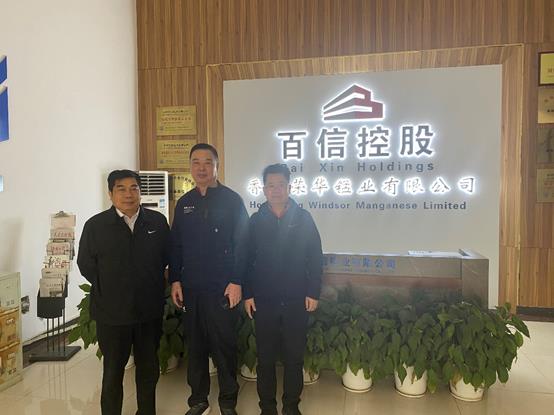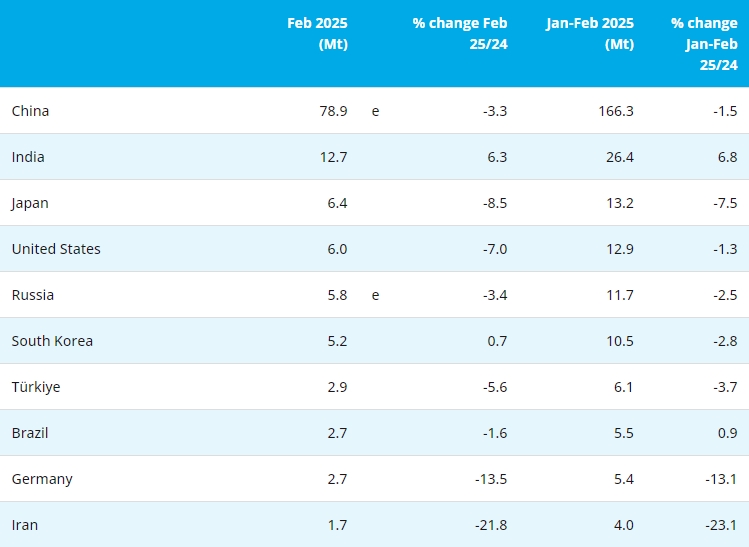
The push toward decarbonization will dramatically increase the demand for ferrous scrap materials among major Indian steel producers in the coming years, Zain Nathani, vice president of the Material Recycling Association of India (MRAI), has said in a Fastmarkets webinar.
India intends to develop a globally competitive steel industry by creating 300 million tonnes per year of steel production capacity by 2030, with 35-40% of this material to come from the electric-arc furnace (EAF) and induction furnace (IF) steelmaking routes, according to the country’s National Steel Policy published in 2017.
Indian imports of steel scrap under harmonized standard (HS) code 7204 reached 1.76 million tonnes in 2023, up by 40.4% year on year, according to figures published by the country’s customs authorities.
Growth was expected to continue in the next few years, with India’s government encouraging the steel industry to promote decarbonization by further increasing the use of scrap in steelmaking, and hydrogen in direct-reduced ironmaking.
As a result of this, many big Indian steel conglomerates such as Tata Steel, JSW Steel and ArcelorMittal Nippon Steel were installing a number of scrap-consuming EAFs.
But even before these furnaces begin operating, a large basic oxygen furnace (BOF) steelmaker sited on the east coast of India last month booked “back to back” deep-sea steel scrap cargoes for import, Nathani said during the Fastmarkets scrap webinar on May 7.
This was a highly unusual move and one not seen from this mill for several years, he said.
Major Indian steel conglomerates tend to rely on local scrap markets for their secondary raw materials needs, because they have traditionally focused on iron ore and coal-based steelmaking and have lower scrap volume requirements, as well as strong domestic market connections.
But the focus for these producers is changing given the need for decarbonization driven by regulations such as the EU’s Carbon Border Adjustment Mechanism (CBAM), Fastmarkets heard at the MRAI’s national conference in Kolkata in January 2024.
“The one mitigating factor in all of this is the focus of the larger [Indian] steel mills on green steel and decarbonization, and how that’s going to affect the ferrous scrap markets in the in the next three to five years,” Nathani said in the webinar.
If the trend for major BOF mills to import bulk steel scrap “is to continue, we will again see a large supply crunch on the supplier side,” Nathani said. “Where will scrap come from, if BOFs such as Jindal, Tata and ArcelorMittal regularly start to import scrap because of the decarbonization and green steelmaking targets they must achieve and maintain for the Indian government?”
At the same time, the Indian steel ministry was also promoting increased domestic recycling in the nation through various policies, Nathani said.
Local scrap generation is rising but, with demand also increasing, EY and KPMG – the major consultants hired by the MRAI – have forecast that India will be in deficit for scrap by 10-20 million tpy for the next 10 years if not longer, Nathani said.
Although the push by the steel ministry for decarbonization is strong, many BOFs find that steel production through traditional iron ore sourcing is comparatively cheaper than raising their scrap intake, according to Raj Shah, vice president for trade at trader Ores & Minerals UK.
“Indian BOFs have been preparing to import [seaborne] bulk scrap for a long time, but high production costs are the issue,” Shah said on May 23. “Many of the BFs have captive iron ore mines and other cheaper sourcing options available, which make it more feasible for them to use more iron ore feed over scrap.
“I don’t think that [BOFs] would increase the scrap intake for their existing units, however,” Shah added. “Many of them are undergoing new EAF expansions, and this may increase their scrap requirements.”
Most market sources expected an uptick in Indian scrap import bookings after the conclusion of the country’s general election process in June 2024.
There is a shortage of scrap in the local market, according to a trader source, and mills need to book material.
Meanwhile, a steel mill source said that finished steel sales have been generally good recently, but harsh summer conditions have affected sentiment in the construction steel markets.
The most recent deals for shredded scrap in containers were heard at $412-415 per tonne CFR Nhava Sheva. fastmarkets
Copyright © 2013 Ferro-Alloys.Com. All Rights Reserved. Without permission, any unit and individual shall not copy or reprint!
- [Editor:kangmingfei]



 Save
Save Print
Print Daily News
Daily News Research
Research Magazine
Magazine Company Database
Company Database Customized Database
Customized Database Conferences
Conferences Advertisement
Advertisement Trade
Trade





 Online inquiry
Online inquiry Contact
Contact

Tell Us What You Think